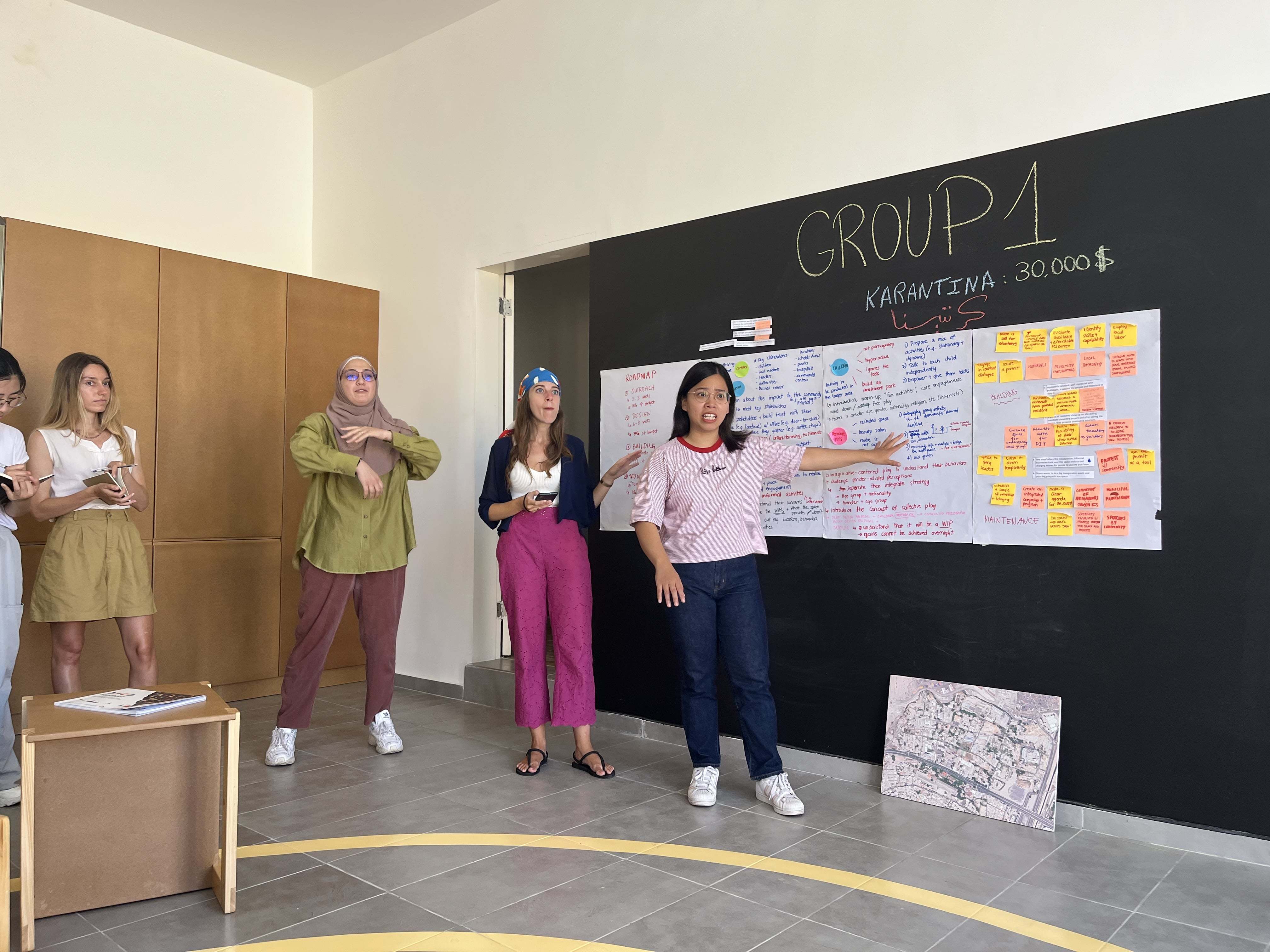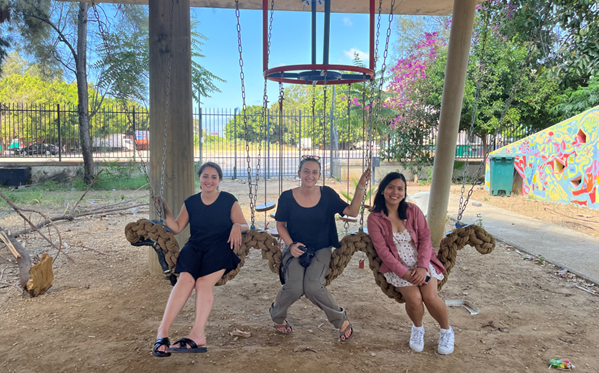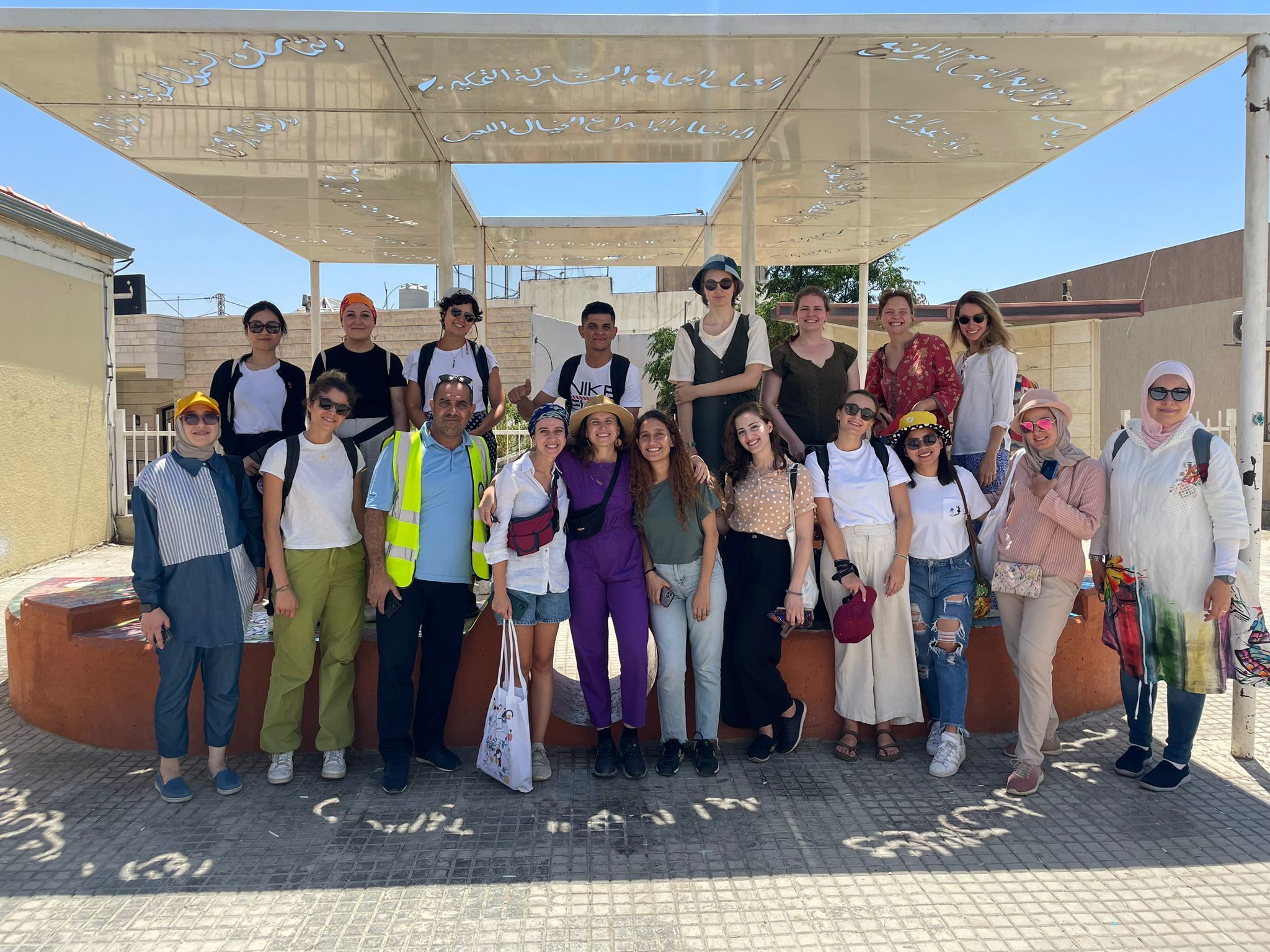Sam Tamayo
27 November 2023
Over the years, Lebanon has gone through massive difficulties across different areas from economic meltdowns to tensions between communities, while facing the exceptional task of providing secure and vibrant opportunities for its people.
The Institute for Global Prosperity (IGP) is committed to transforming how we conceptualize and manage our economies, as well as redefining our connection with the planet. Through PROCOL Lebanon, it is focused on “delivering inclusive and prosperous futures for communities impacted by mass displacement”. To attain its goals, IGP fosters multiple partnerships with different organizations with the objective of creating lasting change.
From my time at the MSc Prosperity, Innovation, and Entrepreneurship program under the IGP, I have learned that for endeavors to be transformative, there must be an active effort to put the voices and narratives of communities at the forefront. By continuously recognizing and negotiating differences in power, knowledge, and truth claims among researchers, practitioners, and participants, we can engage in meaningful discourse and produce a blueprint that celebrates the idea of shared prosperity.
To address the complex challenges Lebanon faces today, with IGP’s partner CatalyticAction the team collaborated on a design workshop that aims to advance justice in neighborhoods through spatial interventions. Armed with expertise in design and architecture, CatalyticAction identified the role of public spaces in rehabilitating the soul of the nation and has been involved in various projects from improving streets to building playgrounds. As post-graduate students at the IGP, we had the opportunity to participate in this activity and learn directly from their practices.
My personal undertakings of engaging with marginalized sectors through Project SMILE, championing gender equality via UN Women Asia and the Pacific’s 30 for 2030 network, and being a part of Dr. Hanna Baumann’s Urban Futures and Prosperity module piqued my attention and motivated me to be a part of this venture. Energized by the support of Dr. Mara Torres and Dr. Konrad Miciukiewicz, I immediately put together an application. Needless to say, I was elated to be one of two MSc students selected. After all, it was the first time that the department decided to invest in a travel award for the enrichment of their students’ experiences and I am thankful for their support for making this happen.

On the relationship of gender equality and the built environment
Leveraging design as a medium, the workshop scrutinized gender disparities within the built environment, particularly emphasising their relevance in the ongoing international discourse. Through a combination of on-site visits, focus group discussions, and desktop activities, it encourages participants from diverse backgrounds to analyse existing challenges as well as co-create community-driven design solutions.
Through the workshop, we were taught to critically analyse underlying problems that led to the emergence of social phenomena. Specifically, we learned that the built environment has been consciously guided by male norms and perspectives. For instance, women are expected to do unpaid care work and are often hidden away in houses. And as girls grow up, their opportunity to use public spaces diminishes because of certain cultural norms (e.g., respectability).
As a response, CatalyticAction generated synergies across a diverse pool of people ranging from young kids to trained researchers at every stage of their project cycle. By upholding their agency, they are empowered to co-design context-specific outputs that are anchored on dignity and inclusivity and shape not just the built environment, but also their personal lives.
With every interaction, I became more informed and inspired by what it truly means to adopt a participatory approach. CatalyticAction’s work may be small in nature, especially in comparison with initiatives of international development organisations, but their influence cannot be denied. I witnessed how powerful their actions were for all stakeholders, and that for me speaks volumes louder than the grandiose achievements of institutions that have more than enough resources available to them.

On positionality, reflexivity, and participatory ethics
During my one-week stay in Lebanon, I was reminded about the importance of reflexivity in conducting research. As articulated by Sultana (2007), reflexivity entails reflection on self, process, and representation to ensure that ethical commitments with respect to knowledge production are preserved.
Having grown up in a country that is also facing numerous struggles, I was conscious of the similarities between the Philippines and Lebanon. From political turmoil to financial crises, I was familiar with the gravity of these issues and how they affected the lives of ordinary people. As a result, these created emotional demands as I was deeply empathetic of their situations.
Nevertheless, I acknowledge that I was put in a unique position of embodying privilege and vulnerability (Caretta and Jokinen, 2017). On one hand, my gender and lack of technical expertise can be perceived as weaknesses. On the other, my mobility and educational background put me in a position of power.
That being said, I believe that my identity enhanced my abilities in not just providing a distinct perspective, but also establishing genuine connections with a wide range of people – from the citizen scientists of Mina to the children of Karantina.

On realizations made and how these shape my own path to prosperity
Without a doubt, this short trip was nothing short of cathartic on all fronts. I was deeply moved by how the people of Lebanon remained optimistic for their futures and for those beyond their immediate circles despite their circumstances. As one of two workshop attendees who did have an architectural or engineering background, my point of view greatly differed from everybody else’s.
At first, it was intimidating to not to know anything about the references they were making. But over time, I was able to comfortably express my opinions based on my lived experiences. Thus, it was flattering to hear “We need more Sams in this world” from the organizers as we were about to leave. The moment became even more special as a group of teenagers sincerely expressed how much they enjoyed having us around. With that, my key takeaways from this life-changing journey can be summarised as follows:
Firstly, I learned about the significance of involving the community and giving them concrete roles in taking action for the betterment of their own spaces. To quote one of the organizers, “Once people realised that citizen scientists are not there to make promises, they opened up more and gave answers beyond the questionnaire required.” This shows that they value individuals who act not as their saviors, but as their collaborators in creating change.
Secondly, the workshop highlighted the importance of establishing a sense of belonging and ownership when it comes to executing projects. In the words of CatalyticAction, “We have to make people feel that the space in front of their doors is an extension of their homes.” Regardless of the type of project being done, the community should view it as their own. By doing so, even if an intervention is already finished on paper, its impact transcends timelines and is observed from one generation to another.
Finally, intentionality and intersectionality play a crucial part in grounding and guiding oneself and actions. Often, we are blinded by our own ethics, biases, and beliefs (Abdelnour and Moghli, 2021). Furthermore, we fail to see how each issue is interconnected with one another. This leads us to introducing band-aid solutions that address symptoms and not the root causes which could lead to unintended consequences. By using a lens that aligns with their needs and aspirations as well as recognises their diverse identities, backgrounds, and experiences, we can design programs that are not only responsive but also respectful to the multifaceted requirements of a specific community thereby promoting long-term social justice and sustainability.
At the end of it all, I know that the stories that I have listened to, the discussions I have engaged in, and the relationships that I have formed will guide me as I navigate the next chapter of my life. And with that, I’m assured that I will always carry a piece of the country with me wherever I go.

Sam Tamayo recently completed her MSc in Prosperity, Innovation, and Entrepreneurship at UCL’s Institute for Global Prosperity as a Chevening Scholar. Currently, she works at a London-based technology consulting firm and is keen to pursue a career in international development. Aside from this, she runs a multi-awarded youth-led non-profit organization in the Philippines called Project SMILE.
References
Abdelnour, S. and Moghli, M.A. (2021) ‘Researching violent contexts: A call for political reflexivity’, Organization, pp. 1–24.
Caretta, M.A. and Jokinen, J.C. (2017) ‘Conflating privilege and vulnerability: A reflexive analysis of emotions and positionality in postgraduate fieldwork’, The Professional Geographer, 69(2), pp. 275–283.
CatalyticAction (2015) ‘Ibtasem Playground Bar Elias, Lebanon 2015’, 1 January. Available at: https://www.catalyticaction.or... (Accessed: 22 November 2023).
CatalyticAction (2020) ‘Karantina Park Rehabilitation Participatory Design, Lebanon 2016’, 24 January. Available at: https://www.catalyticaction.or... (Accessed: 22 November 2023).
CatalyticAction (2021) ‘Karantina Streetscape Beirut, Lebanon 2021’, 11 December. Available at: https://www.catalyticaction.or... (Accessed: 22 November 2023).
CatalyticAction (2022a) CatalyticAction Impact Report 2022. CatalyticAction. Available at: https://www.catalyticaction.org/wp-content/uploads/2023/02/CatalyticAction-Impact-report-2022.pdf.
CatalyticAction (2022b) Home - Catalytic Action. Available at: https://www.catalyticaction.or... (Accessed: 4 November 2023).
CatalyticAction (2023) ‘El Mina Participatory Spatial Intervention, Lebanon 2021’, 9 February. Available at: https://www.catalyticaction.or...el-mina-participatory-spatial-intervention/ (Accessed: 22 November 2023).
Karasapan, O. and Shah, S. (2021) Why Syrian refugees in Lebanon are a crisis within a crisis, Brookings. Available at: https://www.brookings.edu/arti... (Accessed: 4 November 2023).
Project SMILE PH (no date) Home - Project SMILE PH, Project SMILE PH. Available at: https://projectsmileph.com/ (Accessed: 4 November 2023).
Sultana, F. (2007) ‘Reflexivity, positionality and participatory ethics: Negotiating fieldwork dilemmas in international research’, ACME: An International E-Journal for Critical Geographies, 6(3), pp. 374–385.
UCL Institute for Global Prosperity (2020a) PROCOL Lebanon, UCL Institute for Global Prosperity. Available at: https://www.ucl.ac.uk/bartlett... (Accessed: 4 November 2023).
UCL Institute for Global Prosperity (2020b) Urban futures and prosperity, UCL Institute for Global Prosperity. Available at: https://www.ucl.ac.uk/bartlett... (Accessed: 4 November 2023).
UCL Institute for Global Prosperity (no date) Redesigning prosperity for the 21st century, IGP PROCOL. Available at: https://www.prosperity-global.... (Accessed: 4 November 2023).
UN Women Asia and the Pacific (2023) 30 for 2030 initiative sees the second intake, UN Women Asia and the Pacific. Available at: https://asiapacific.unwomen.or... (Accessed: 4 November 2023).
Fatemeh Sadeghi
30 May 2024 Feminists in the Global South have stepped out of the conventional territories of ‘women’s matters’ into more fund...